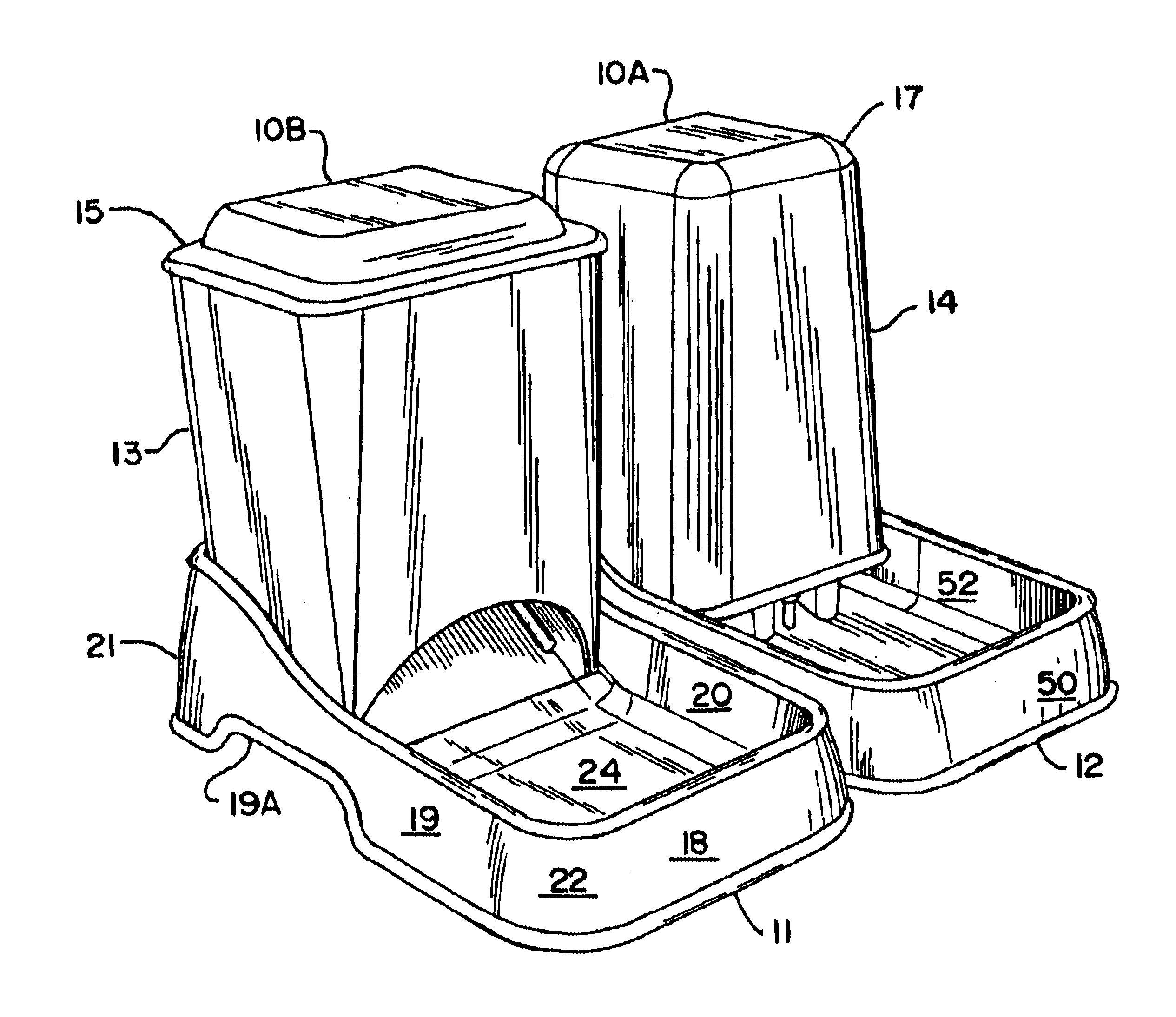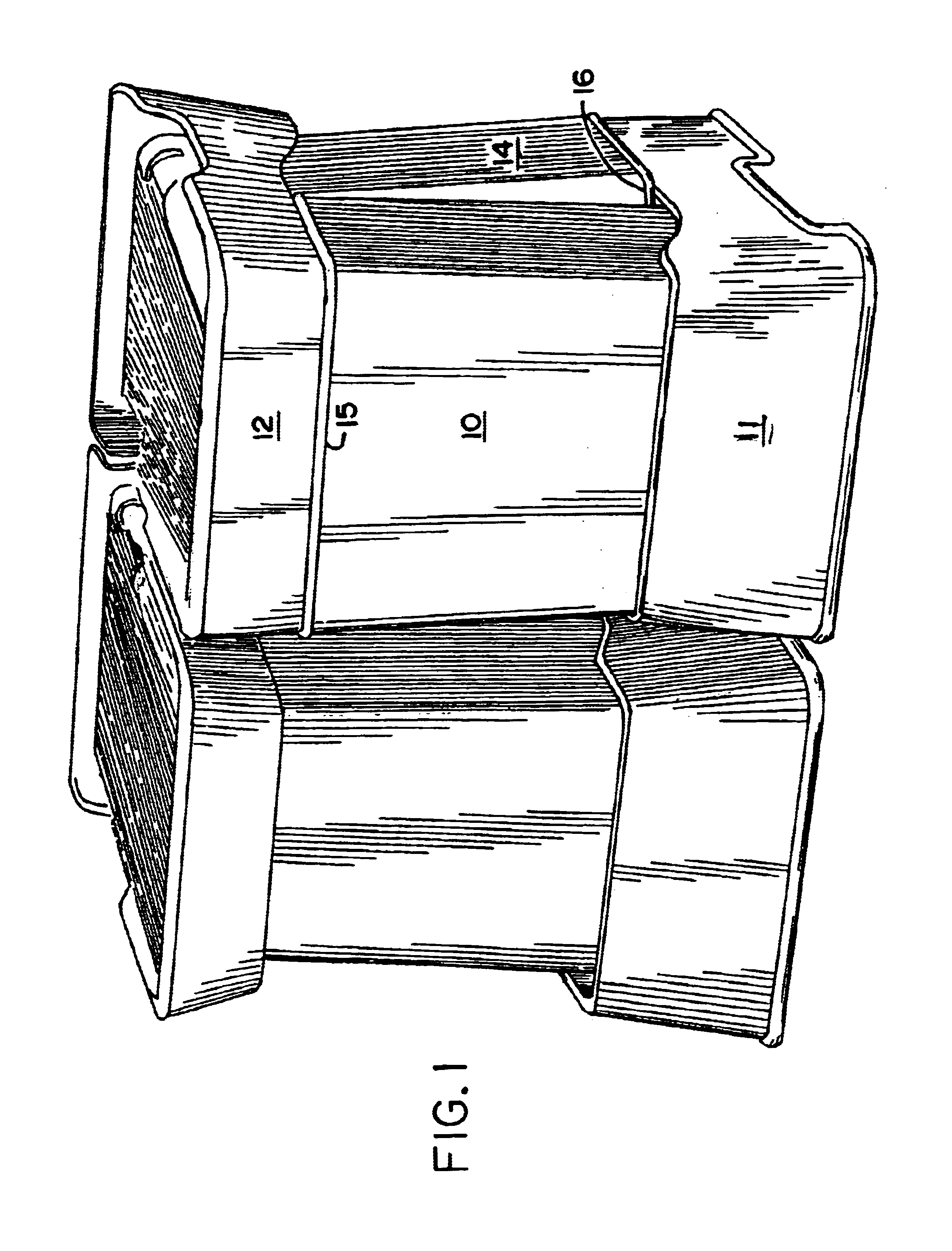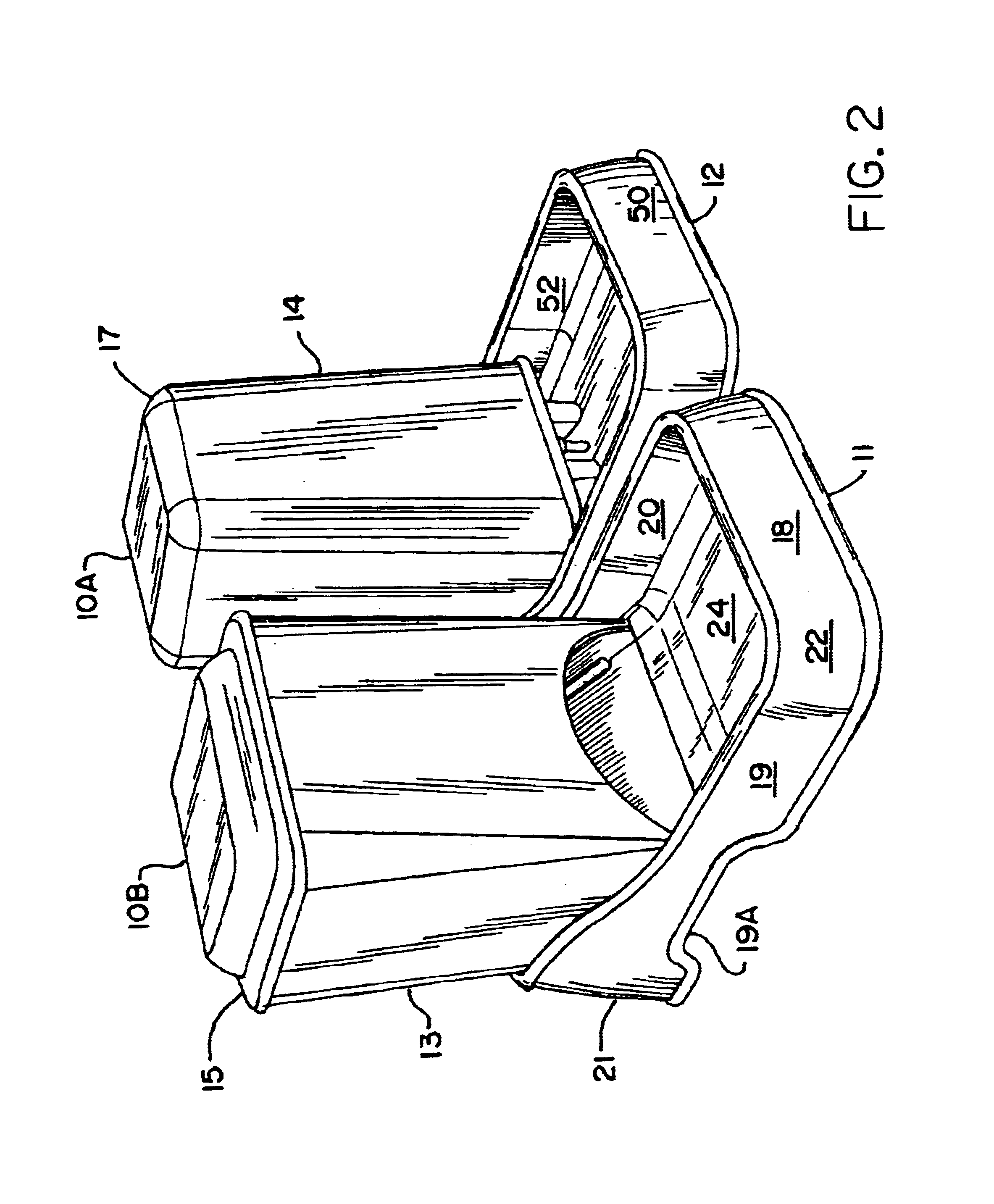Pet waterer and feeder
a feeder and watering bowl technology, applied in the field of pet watering bowls, can solve the problems of water spillage from the bowl, difficulty in refilling the bowl, and water spillage as the container was inverted, and achieve the effect of fewer clogs and improved food dispensing
- Summary
- Abstract
- Description
- Claims
- Application Information
AI Technical Summary
Benefits of technology
Problems solved by technology
Method used
Image
Examples
Embodiment Construction
The present invention is directed to an animal refreshment apparatus 10. This apparatus may be a combination waterer and feeder that are adapted to nest together in a compact arrangement for shipping, and display. In another embodiment, there can be a first and second pet feeders that can similarly nest together or a pair of first and second pet waterers as well. There is a waterer 10A and a feeder 10B. It will be appreciated by those skilled in the are that there can be a pair of waterers 10A or a pair of feeders 10B together. In each instance, there are a pair of trays 11 and 12 and a pair of receptacles 13 and 14. Each of the receptacles may be provided with a removable cover 15 and 16 or the cover 17 may be integral with the receptacle 14 as shown in FIG. 2. A removable cover is preferable because it is easier to fill the receptacle 14 with the cover removed as opposed to filling the receptacle through the opening 44. While the tray 11 may be any configuration, it has been found...
PUM
 Login to View More
Login to View More Abstract
Description
Claims
Application Information
 Login to View More
Login to View More - R&D
- Intellectual Property
- Life Sciences
- Materials
- Tech Scout
- Unparalleled Data Quality
- Higher Quality Content
- 60% Fewer Hallucinations
Browse by: Latest US Patents, China's latest patents, Technical Efficacy Thesaurus, Application Domain, Technology Topic, Popular Technical Reports.
© 2025 PatSnap. All rights reserved.Legal|Privacy policy|Modern Slavery Act Transparency Statement|Sitemap|About US| Contact US: help@patsnap.com



